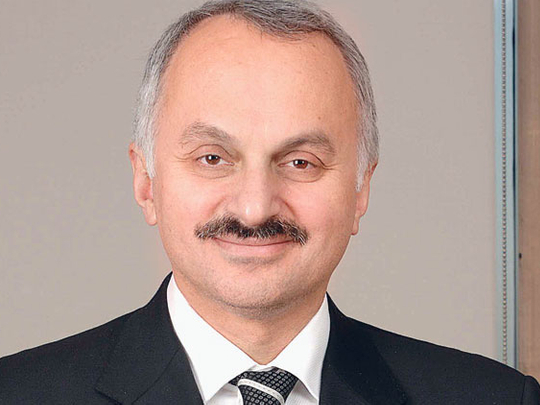
Barcelona/Dubai : Turkish Airlines was one of the few airlines which weathered the storm of the financial crisis and the downturn in aviation business quite impressively. In 2009, Turkey's semi-privatised national airline announced a massive expansion mainly to Asia and doubled its capacity on long-haul flights, targeting an overall passenger number of 40 million annually by 2012.
Currently, the airline is the fourth-biggest national carrier in terms of passenger numbers in Europe, behind Lufthansa, Air France and British Airways.
Gulf News spoke to the company's CEO Temel Kotil on the sidelines of a sponsoring deal-signing in Barcelona on January 18. Turkish Airlines has become official sponsor of one the world's most successful football clubs, FC Barcelona, for three years, — one more step on its way to become a global brand, as Kotil says.
One focus of the expansion strategy is the Middle East.
Gulf News: Turkish Airlines has a strong presence in the Middle East. Could you please outline your expansion plans for the region?
TEMEL KOTIL: Turkish Airlines is one of the most active players in the region. The Gulf is very important for the Turkish community, and we are looking to increase capacity by 30 per cent in 2010. We have already ordered new aircraft, and we have opened new destinations in our flight plan, like Jeddah, Riyadh and Madinah. Turkish is also one of the few airlines serving Iraq's capital, Baghdad. In the UAE, Turkish is connecting Dubai and Abu Dhabi with its hub in Istanbul, and the flights are booked very well. Istanbul is a perfect hub for Middle East passengers as we offer connecting flights to many cities in Europe. Our total transit passenger numbers have grown by 43 per cent last year.
Turkish is growing very fast, is extraordinarily profitable and has recently ordered 20 new Airbus jets with an option of ten more by 2013. Why is it that fares are kept relatively cheap compared with other airlines serving the region?
The answer is that we keep our costs very low. Turkish has a very favourable passenger-per-employee rate, which reduces the cost of staff. Adding to this, labour costs in Turkey are low as well, and we are also looking to permanently increase our efficiency in all sectors. The result is that we are doing very crazy things in these times: We are hiring new staff —around 1,000 in 2009; this year, we will add 1,500 new staff.
Turkish Airlines might be much more efficient than other national carriers in Europe, but the real competition to face is surely discount carriers? On the Gulf-Europe route, carriers like Air Arabia offer cheaper tickets than Turkish to Istanbul. If travellers combine Middle Eastern and European discounters, they can fly very cost-efficiently to many cities in Europe.
But we offer a far better network and, besides that, better service and better seats on our planes which makes the journey much more convenient compared to discount airlines.
Does your focus lie on tourist passengers or more on higher-yielding business-class seats?
We are concentrating on business travellers as Istanbul is among the top 100 cities in the world, it is a place where money can be made. But, of course, tourist travellers and charter flights are important as well.
How did Turkish manage to get through the financial crisis which hit the entire aviation sector hard?
Many of the airlines faced the threat, we concentrated on the opportunities. At the end, we are now much healthier than before and were able to hire new staff.
There is much talk about airline security again since several instances happened recently. What is your stance on stricter security measures for passengers?
I can assure [you] that we take security for our passengers very seriously, and our security is good. But, [in general], it should not cause too much stress for passengers at the airport. It is more important that possible threats are identified by intelligence earlier.
Your business challenge for the current year?
We remain aggressive and keep our costs low. The targets are 30 million passengers and a revenue of $5.7 billion in 2010 after approximately $5 billion last year.
Are there expansion plans for the UAE or Dubai, respectively?
This is not decided yet. Dubai has always been a very good market up to now, and my personal view is that this will continue. The city is a very important airline hub for the region.
Profile
leading since 2005
Temel Kotil, 50, has been Turkish Airlines' CEO since 2005. He studied aeronautical engineering in Istanbul and the US and holds a PhD degree from the University of Michigan. He has served on the Board of Governors of the IATA since 2006.
Turkish Airlines was founded in 1933 by the Turkish Ministry of Defence and restructured in 1955 as a state airline. In 2005, the airline was partly privatised. Today, the Turkish state holds 49.1 per cent, and the rest is free floating. Currently, the airline has a fleet of 134 aircraft, serving 156 destinations worldwide. Turkish Airlines is member of the Star Alliance Group.









